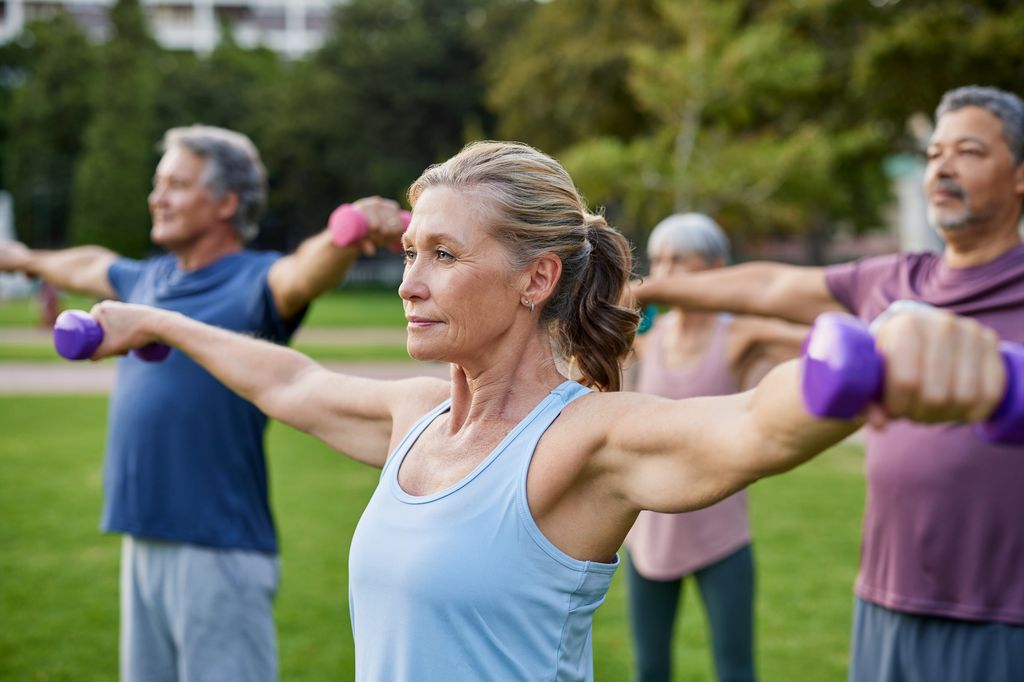There’s a widespread belief that exercising on an empty stomach makes the body burn more fat. However, the human body isn’t a robot that responds to such a simple algorithm. A lot of variables can come into play: the type of physical exercise performed (cardio and weight training are not the same) as well as the the intensity, or even the state of our body’s reserves depending on what we had for dinner the night before. We can say that it’s true, though, that exercising on an empty stomach can help with fat loss. Why? When we first wake up in the morning, our reserves of glycogen – the way our body stores glucose, its main source of energy – are lower. And when glycogen is below normal functioning limits, our body will opt to use its body fat reserves to fuel us instead.
The strategy might sound straightforward, but – as with everything in life (and fitness) – there are nuances you need to consider before you start training without having eaten.
Will I lose more weight if I work out on an empty stomach?
Well, it’s not that simple. “Although more fat is burned during activity on an empty stomach, this doesn’t guarantee a greater reduction in fat tissue if it’s not accompanied by a negative and sustained calorie balance over time,” explains the pharmacist Marian García.
In other words, if you don’t also watch what you eat during the day, working out while on a fast won’t directly lead you to lose weight. So, ideally you want to make sure you follow a balanced diet and stay active, too.
 © Getty ImagesOne study showed that if you do moderate aerobic exercise and carbs aren’t available, the body relies more on fats as an energy source
© Getty ImagesOne study showed that if you do moderate aerobic exercise and carbs aren’t available, the body relies more on fats as an energy source
Studies have shown that you can burn more if you do cardio. For example, a 2016 study observed that when you do moderate aerobic exercise on an empty stomach, such as running, swimming, or cycling, and carbohydrates are not available, the body relies more on fats as an energy source.
Hormones are key
Hormones are the key protagonists that influence how much fat you burn. Fasting affects these chemicals: it’s associated with low insulin levels and elevated levels of hormones like glucagon and adrenaline. These hormones promote the release of fatty acids from stored body fat (adipose tissue). When your insulin and blood sugar are low, your body is effectively mobilising those fatty acids to supply energy to your muscles.
 © Getty ImagesDon’t neglect strength training if you want to lose weight
© Getty ImagesDon’t neglect strength training if you want to lose weight
Now, regarding your workout effort: even if you think that putting in maximum effort when running will burn more fat, the reality is that the most efficient way to oxidise fat is actually to go slower and maintain a moderate, consistent pace.
In general, women tend to burn more fat than men in moderate-intensity aerobic activities. This is partly due to oestrogens, which favour the use of fat as fuel. But more studies are needed to confirm this 100 per cent.
How does strength training help us?
Strength training won’t make you burn more fat in the moment. But it can help you lose more weight overall. This is because these exercises increase muscle mass, and muscle increases the basal metabolic rate, which means you burn calories even at rest.
 © Getty ImagesYour body clock, sleep habits and stress levels also influence the impact on weight loss
© Getty ImagesYour body clock, sleep habits and stress levels also influence the impact on weight loss
The ideal is to combine it with cardio and dedicate a minimum of 15 minutes three days a week to working with weights.
Bottom line: Don’t neglect strength training if you want to lose weight. In fact, if you’re in menopause it’s a key exercise – more important and effective than cardio.
Who shouldn’t try fasted cardio?
We already know what we should do to burn more fat if we exercise on an empty stomach. Now, is this training suitable for you? It depends. Exercising without having eaten raises cortisol and adrenaline in such a way that, if not balanced later with good nutrition, some people experience greater difficulty sleeping or report poor sleep quality the following night.
Fasted cardio is not recommended for diabetics or people with heart or kidney problems, if you are pregnant, or if you have suffered from an eating disorder at some point in your life
This is due to hormonal alteration. So if you notice these patterns, it could be an indirect sign of excessive stress, and you should consider whether to continue this type of workout regime.
On the other hand, not everyone can run or perform other types of sport on an empty stomach. This is the case for people with diabetes or those with heart or kidney problems, if you are pregnant, or if you have suffered from an eating disorder at some point in your life. In these cases, it is better to be cautious and consider another strategy.
 © Shutterstock / YAKOBCHUK VIACHESLAVWell-planned fasted training (mainly moderate cardio) can help you improve your body composition, as long as you integrate it into a healthy lifestyle
© Shutterstock / YAKOBCHUK VIACHESLAVWell-planned fasted training (mainly moderate cardio) can help you improve your body composition, as long as you integrate it into a healthy lifestyle
3 expert tips for better workouts on an empty stomach
Marian García gives us some keys to make training on an empty stomach truly beneficial:
What intensity should I choose? “In gentle or moderate efforts (zone 2), the body primarily uses fat as an energy source. In contrast, when exercise is intense (zone 4-5), the body resorts to carbohydrates because it needs immediate fuel. It’s better to maintain a controlled pace that allows you to oxidise fat efficiently.”
What should I eat afterward: “After running on an empty stomach, it’s time to refuel. And you can’t eat just anything. It’s not enough to ‘reward’ yourself with a croissant or toast with jam for how much you’ve run. The ideal is to combine quality protein and carbohydrates to recover muscle and replenish glycogen. An ideal breakfast would be an omelette with wholemeal bread, yoghurt with oats and fruit, or chicken with rice, wholemeal pasta and vegetables.”
Is this a ‘magic formula’?: “Well-planned fasted training (mainly moderate cardio) can help you improve body composition, as long as you integrate it into a healthy lifestyle. It’s not a magic formula on its own and shouldn’t be taken to the extreme. Keep in mind the each body’s response to fasting is different. Your body clock, sleep habits and stress levels also influence.”
 © Getty Images After working out an empty stomach, it’s time to refuel with a hearty and healthy breakfast
© Getty Images After working out an empty stomach, it’s time to refuel with a hearty and healthy breakfast
Before working out, dedicate a few minutes to warming up your body. It’s your way of saying “Let’s do this!” Afterward, stretch: it’s key to preventing injuries.
How to safely try fasted cardio
If you run outdoors: Don’t forget to use good sun protection when exercising in the morning. Although radiation is low at dawn, it can still damage your skin.
Hydrate: Whatever exercise you’re going to do on an empty stomach, remember that you need to hydrate. Start your workout well-hydrated and replenish fluids at the end of your session. Water is the drink of choice.
Bring a snack: Carry something to eat with you in case you suddenly start feeling unwell. If you feel dizzy, sit down ask for help and place your head between your knees.

